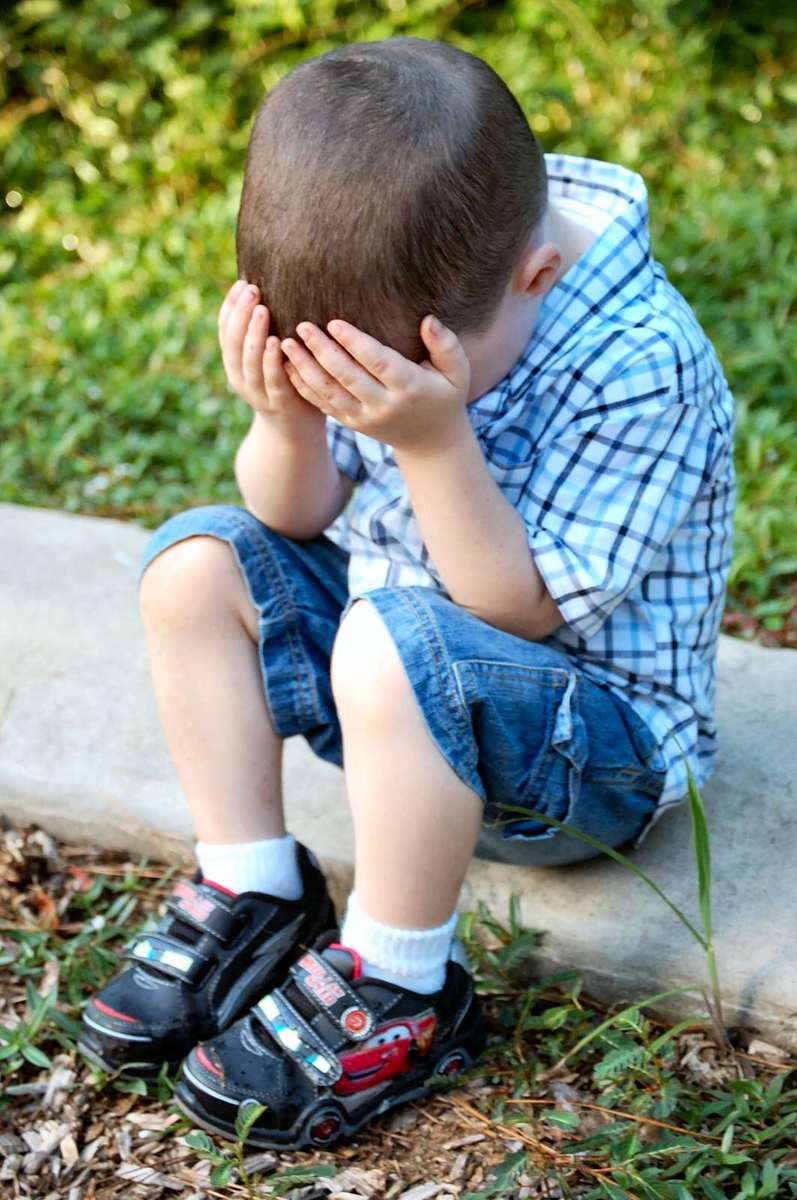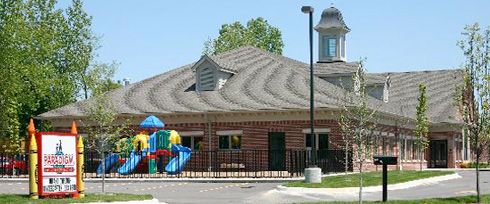When to Keep Your Child At Home
Children with the following symptoms must be excluded from school the next day AND must be symptom-free for at least 24 hours without the use of medication (fever reducers) before returning. Students who are sent home with the symptoms listed below cannot attend school the next day, regardless of whether they see a doctor or not.
- Fever
- Nausea and vomiting
Children with the following symptoms must be excluded from school the next day and must be symptom-free for at least 24 hours before returning unless they have a doctor’s note indicating they are not contagious and may return to school.
- Red or running eyes, colored discharge from the eyes or nose.
- Cough that is persistent or productive.
- Sores or crusts on the scalp face or body, including those that are draining.
- Skin eruptions or rash.
- Sore throat.
- Swelling and tenderness of the glands, particularly about the face or neck.
- Pain and stiffness of neck and/or headache.
- Jaundice (yellowing of eyes and/or skin)
- Persistent abdominal pain.
- Diarrhea (three or more in 24 hours)
Paradigm requires you to report all doctor-diagnosed illnesses to our office if other children at Paradigm were exposed to the illness. We require this so a confidential notice can be posted to all parents on our lobby computer.
Medication Policy
- Paradigm will encourage parents to give medication at home whenever possible.
- Paradigm will only administer essential medications and/or necessary emergency medication such as EpiPens or Rescue Inhalers.
- Rescue medication must be stored on-site, not transported back and forth daily.
- Parents are responsible for tracking expiration dates and replacing medications and administration instructions when necessary.
- Essential medications will be administered ONLY at 12:00 pm.
- Inhaled and emergency medications will be given when needed.
- Proper forms must be completed by parents/guardians and medication must be dosed …..for the child’s age.
- Prescription medications must include a dosing instructions label.
- Cold medicine WILL NOT be administered by Paradigm.
- Paradigm & Enrichment Center may refuse to administer medication at the discretion of the center.
Health Practices FLU & COLD SEASON
With cold and flu season upon us we wanted to remind you of some important information from the Oakland County Health Department. At Paradigm, we strive to maintain a healthy environment for all children. When children attend school when they could possibly have a communicable disease it puts all of the other children and staff in the building at risk. We understand the burden of leaving work to pick up an ill child can be a struggle; however, we ask that you please keep in mind the well-being of all children in our care as well as our staff. With the threat of Flu, RSV, and other communicable diseases, Paradigm will continue to do what has always been done in the past.
We sanitize doorknobs, light switches, and highly touchable surfaces at least once a day with our top-notch sanitizing products. Also, we continue to practice frequent and proper handwashing with both students and staff. We realize that we can not control the other environments that our students and staff visit outside of our building where they might come in contact with something communicable and bring it into Paradigm. Also, we are however very proud of the fact that our building is generally very healthy and clean and are confident that we will remain strong through another flu season. We also encourage all staff and enrolled students to receive a flu vaccination every year. Paradigm requires that all children enrolled be up-to-date with immunizations or have a certified waiver from the Health Department on file.
Keeping our School Healthy
During the Fall and Winter months, we see lots of runny noses and red eyes at school. Sometimes this is due to allergies and other times it could mean a condition that could be communicable. Either way, it is important for us to know so that we can keep other children and the Teachers healthy and in school and you at work. Giving your child medication that masks symptoms does not make them not contagious. Sending your child to school ill could lead to a more serious condition for them and also introduces sick germs into the building which can affect your child again after they recover. Keeping Teachers healthy is equally important.
We appreciate your honesty with us when we communicate about the symptoms we are observing at school. Also, letting us know about a diagnosed illness helps us keep other parents informed and allows us to catch symptoms quickly. By catching symptoms quickly we reduce the spread of illness. Children, like adults, get sick from being in life and will pick up germs no matter where they are. We frequently hear parents say kids get sick from being in Daycare.
While this may be true it is more accurate that we are more likely to pick up germs wherever we spend lots of our time. We do our very best to reduce the spread of germs by following sanitizing procedures and enforcing health practices and policies at Paradigm. We need your help, as well, to keep Paradigm a healthy environment. Below are some suggestions for participating in supporting a healthy school environment.
- Be familiar with our Health Policy. Frequently parents tell us they were already aware of a symptom we observe and call them about. We will have you pick your child up if we are concerned that it could be a contagious condition. If you already took your child to the doctor regarding the condition (or if it is a reoccurring condition for your child) ask your doctor for a note stating that the condition is not communicable for us to keep on file.
- Don’t assume it is okay for your child to have the same symptoms as other children and not be contagious. If you see someone with runny eyes or a rash when you pick your child up for the day we have received a doctor’s note stating their condition is not contagious.
- Please don’t mask symptoms with medication and send your child to school. This isn’t fair to anyone including your child. It is important to keep Teachers healthy to prevent the spread of illness as well. Please be completely honest with us when your child is ill so we can pass that information on to other parents to guide their treatments for their children.
- Have a backup plan in place. Even when your child seems completely fine in the morning they can become ill during the day. When we call you because your kiddo is ill we expect them to be picked up within an hour. We do our best to keep them isolated from others but it is not always possible. Having an emergency pick-up person in place helps you, us, and your child out.
Thank you for supporting us in providing a healthy environment for everyone at Paradigm!
A Letter from Dr. Kim Coleman
 Parents frequently express frustration during the winter cold and flu season about the fact that their children seem sick “all the time”. Upper respiratory infections commonly referred to as “colds” are much more prevalent in winter months for reasons that are not entirely understood. A runny nose, cough, fever, and sore throat are typical symptoms. The average “cold” will run its course over 7-10 days, during which time it is not unusual to have yellowish nasal drainage, which subsequently resolves.
Parents frequently express frustration during the winter cold and flu season about the fact that their children seem sick “all the time”. Upper respiratory infections commonly referred to as “colds” are much more prevalent in winter months for reasons that are not entirely understood. A runny nose, cough, fever, and sore throat are typical symptoms. The average “cold” will run its course over 7-10 days, during which time it is not unusual to have yellowish nasal drainage, which subsequently resolves.
While adults average 2-4 colds per year, young children typically experience 8-12 episodes per year, mostly clustered in the winter months. If you take into consideration the average number of cold episodes and the fact that it takes about 2 weeks for each cold to run its course, many kids, especially infants and toddlers are in fact “sick” more than they are well during the winter months. While most colds can be managed with rest, fluids, and over the counter medications to control fever and congestion, if you feel your child is not improving, is running persistent fevers, or is having difficulty breathing, it is wise to seek medical attention to rule out complications such as ear or sinus infections, which might benefit from treatment with antibiotics.
As children grow older, their cold frequency decreases. Although young children attending daycare centers experience an increased frequency of colds compared with children who stay home, daycare attendees have a lower incidence of illness than “stay at home kids” when they begin elementary school, presumably due to the protective effect of the immunity they have developed from prior infections. There is also some evidence that increased exposure to “colds” can lower a child’s overall risk of allergies or asthma. So…the next time you think your child has been sick most of the winter…you are probably right, but as long as they aren’t developing any serious complications, maybe it’s not such a bad thing after all! Dr. Kim Coleman, M.D., FAAP Copyright K Coleman, LLC 2005








